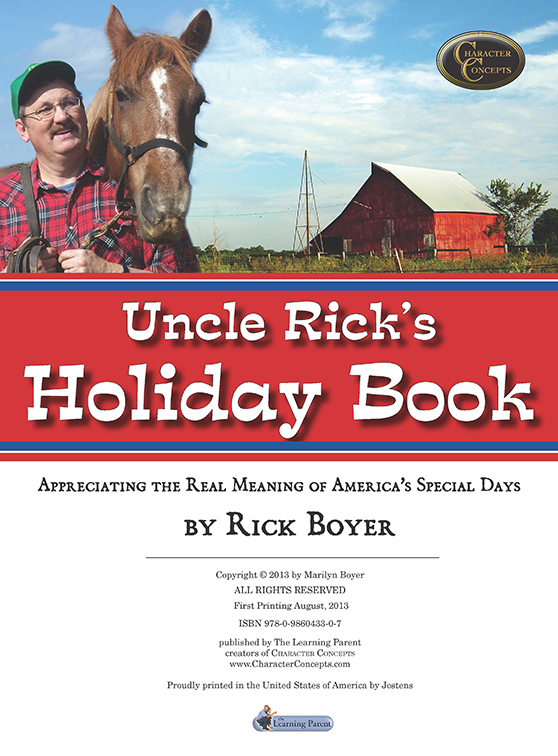

“In this world nothing can be said to be certain, except death and taxes.”.“Have you somewhat to do tomorrow, do it today.”.“Diligence is the mother of good luck.”.“Stick to it steadily, and you will see great effects.”.“Do not squander time, for that is the stuff life is made of.”.“By failing to prepare, you are preparing to fail.”.“An investment in knowledge always pays the best interest.”.The more of it one has, the more one wants.” “Money has never made man happy, nor will it, there is nothing in its nature to produce happiness.“If you would be wealthy, think of saving as well as of getting.”.“When you run in debt, you give to another power over your liberty.”.Money can beget money, and its offspring can beget more.” “Money is of a prolific generating nature.

“The way to wealth…depends chiefly on two words, industry and frugality: that is, waste neither time nor money, but make the best use of both.”.

Here are 16 that are among Uncle Ben’s best: Many of his more than 700 maxims are familiar and still widely quoted. Still, Uncle Ben left a legacy of proverbs that are as relevant today as they were when he coined them more than 250 years ago. Actually, Uncle Ben’s original 1737 words were “A penny saved is two pence clear,” which he revised in 1758 to “A penny saved is a penny got,” closer to today’s modified version of his quotation.įranklin was by no means perfect, especially when judged by today’s standards. This short booklet was an essay compiling 25 years of maxims from his Poor Richard’s Almanack.Ĭheck your inbox or spam folder to confirm your subscription.Īs a lifelong penny-pincher, I have followed his mantra that a penny saved is a penny earned. In 1758, he wrote one of the earliest books on personal finance called The Way to Wealth. More important, Uncle Ben was a prolific writer who promoted simple, positive philosophical principles about finance and life. As a teen, I read biographies about him, and he was my go-to subject for history and science papers. Uncle Ben was a founding father and inventor of the lightning rod, bifocals and the Franklin stove, which produced more heat with less smoke. Still, my Philadelphia-based family regularly discussed Ben’s history and touted his words of wisdom. He was indeed a relative, though by marriage, so I’m not a direct blood descendant. You see, my uncle was Uncle Ben-of Ben Franklin fame. They also introduced me to the story of our famous “uncle.” Some time after the Yogi Bear incident, my parents talked to me about the concept that “a penny saved is a penny earned.” They were happy that I didn’t spend my savings on an unneeded toy since, in their view, I had many other things to play with. For example, I remember regularly wanting a 10-cent ice cream cone from the daily summer runs of the Good Humor truck-but again didn’t bite when my parents insisted that I part with some of my own money. My parents used the same tactic many times. This story has been repeated so often it’s now part of family lore. I passed on the set, and we never did buy it. I threw a hissy fit as only a young child can. The 99 cents represented perhaps 20% of my life’s savings. One day, my parents relented and agreed that I would be allowed to buy the set, but said I would have to pay the 99 cents from my coin jars. In those days, my family couldn’t afford much of anything on a whim. They initially said a simple “no,” and I let it pass. Every time we left the store, I begged my parents to buy it. I vividly remember wanting a Yogi Bear gun, hat, holster and badge set, which was on display at our local five-and-dime. Along this savings journey, they also introduced my uncle’s advice through both everyday practice and some preaching. My Depression-era parents were quite supportive of my slowly filling penny jars. Little did I know that as many as a billion pennies had been minted each year. I even favored older pennies since they might provide greater long-term value. Production of wheat pennies had ended three years earlier, in 1958, which led me to think they would become collectibles. We soon added a couple of mason jars because I had begun collecting wheat pennies with my small allowance. I had been given a small piggybank to store my life’s savings. My family first introduced me to my uncle’s doctrines when I was a child of five or six. Even though he was not a registered investment advisor or a Certified Financial Planner, our family proudly extolled his ideas when I was growing up. He was an early investment advisor and published a book on wealth management. I LEARNED A LOT about finance and life from my uncle.


 0 kommentar(er)
0 kommentar(er)
